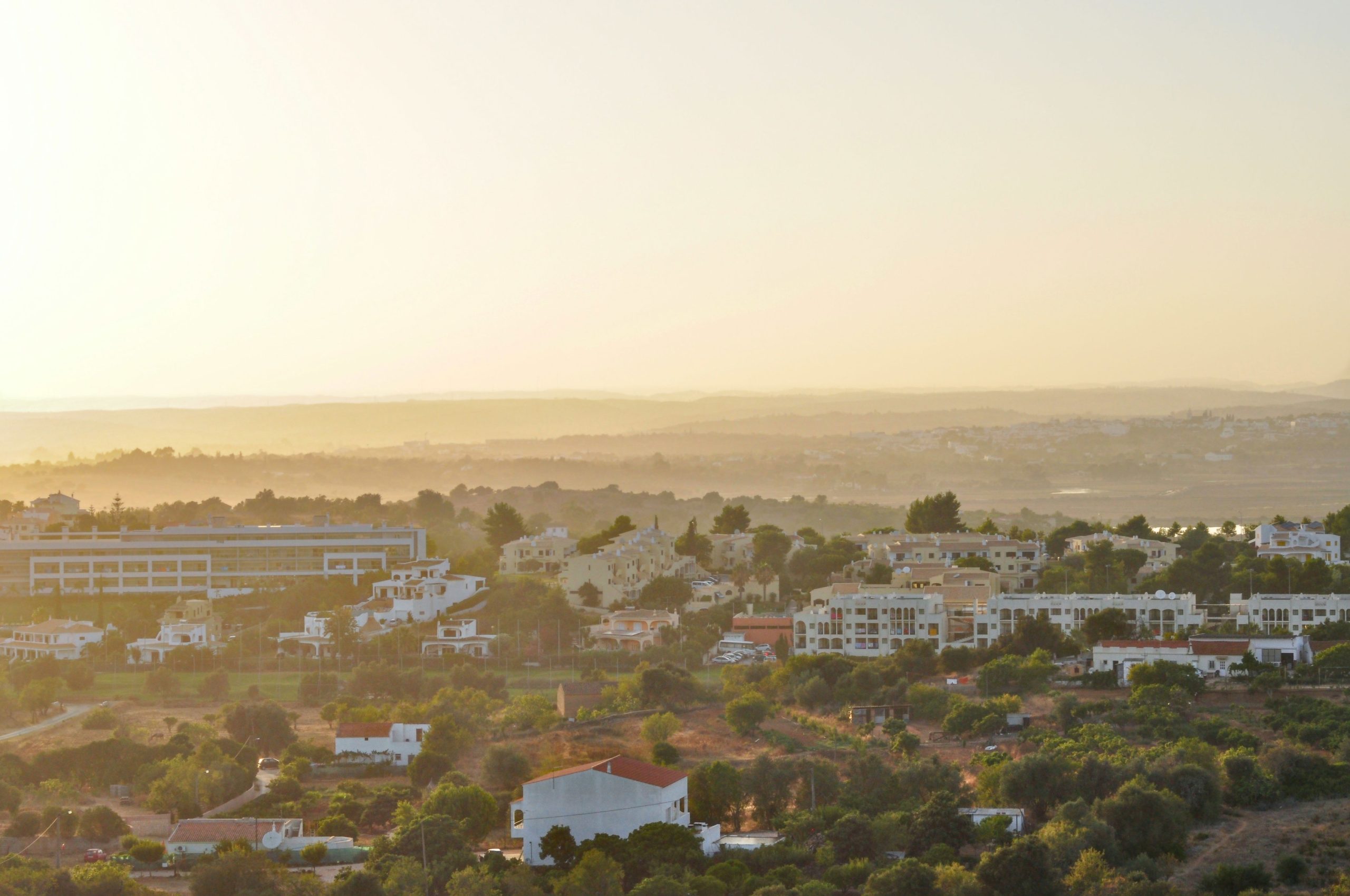Tucked at the western edge of Portugal’s Algarve, Lagos is a town where golden cliffs tumble into brilliant blue sea and life runs at a slower tempo. Cobbled lanes and boat-fresh seafood, Lagos draws wanderers after a blend of lively expat spirit and authentic Portuguese warmth.
The town’s charm isn’t just in its beaches—though they’re stunning—but in the rhythm of year-round café culture, mellow winters, and that sense of freedom you get when close to the Atlantic. It’s no surprise that
living in Lagos
is a popular decision for many.
- Is Lagos a good place to live?
- Pros and cons of living in Lagos
- Cost of living in Lagos
-
Best neighbourhoods in Lagos
- Centro
- Porto de Mós
- Lagos Marina
- Meia Praia
- Outskirts and rural Lagos
- Weather in Lagos
- Live music in Lagos
- Living Lagos vs. living in Faro
-
Expat life in Lagos
- Where do most expats live in Lagos?
- Is Lagos a good place to retire?
Is Lagos a good place to live?
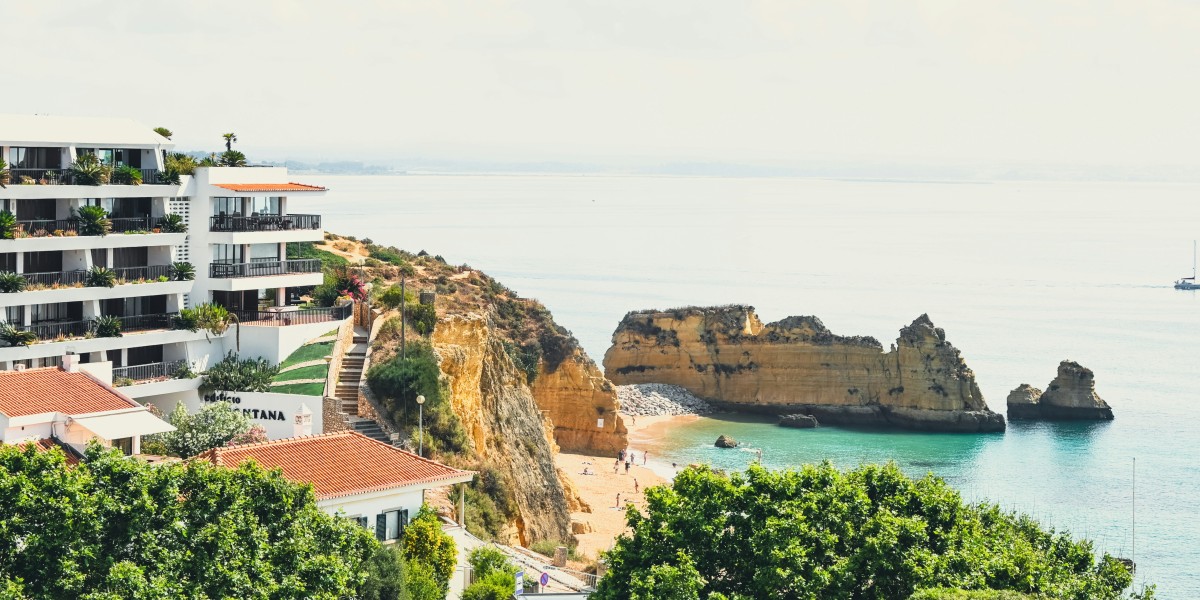
Unsplash
Lagos gets a nod from many expats and digital nomads looking for a
relaxed spot in the Algarve
that balances community and culture. The historic centre buzzes in summer, but off-season it feels far more intimate. You’ll come across friendly faces at the mercado, impromptu live music in the backstreets, and terraces that never quite empty, even in February. You’ll find
good healthcare, supermarkets targeting international tastes,
and enough
English-speaking services
to make the transition smooth for newcomers.
For those craving nature on the doorstep, Lagos offers it in spades. You can walk the dramatic cliffs to
Ponta da Piedade
, dive into surf schools on wild beaches, or hop a train further along the coast with little fuss.
Pros and cons of living in Lagos
Life in Lagos has its own rhythm—and, like anywhere, its quirks. Here’s what stands out once you settle in.
Some of the upsides to living in Lagos include:
-
Stunning natural setting:
from world-famous beaches like Praia Dona Ana to red sandstone cliffs, Lagos’ backdrop never gets old. -
Welcoming, mixed expat and local community:
it’s easy to plug in, whether through language meetups, local markets, or international nights at little bars. -
Mild winters and long, warm summers:
living here, you really do lose track of when “beach season” ends.
Worth noting are a couple of drawbacks:
-
Seasonal crowds and tourism:
High summer brings a swell of visitors, great for nightlife, less fun for parking or peace and quiet. -
Limited work options beyond tourism/hospitality:
Year-round, decent jobs can be harder to come by unless you’re remote, retired, or entrepreneurial.
Cost of living in Lagos
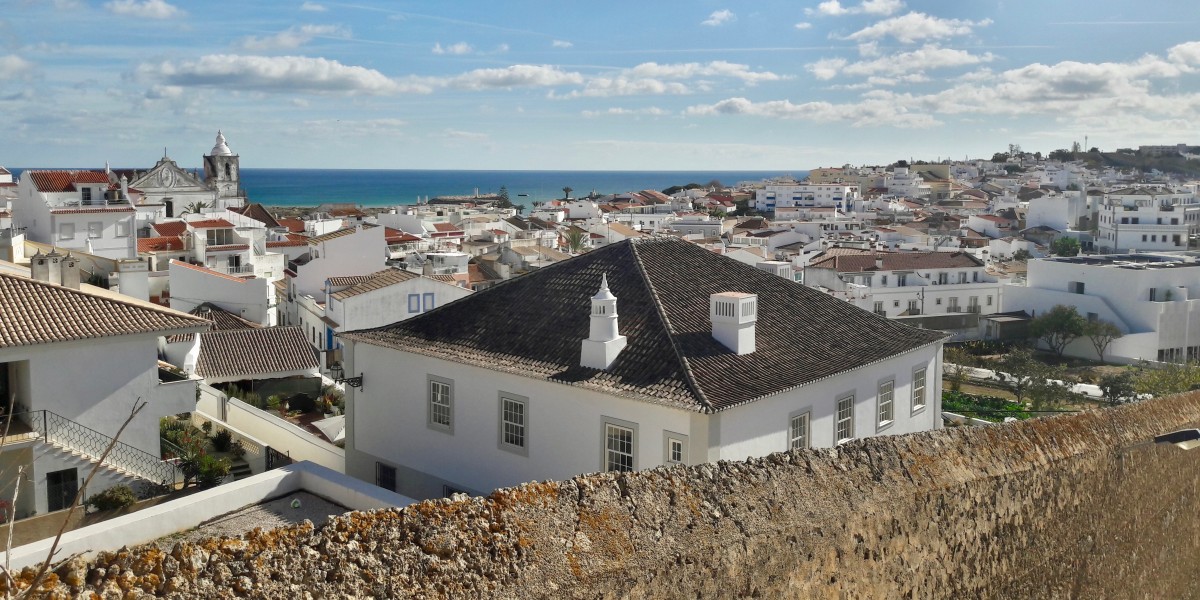
Bextrel, CC BY-SA 4.0
Creative commons
For most, the cost of living in Lagos is one of the town’s biggest pluses, especially compared with Western Europe or major Portuguese cities like Lisbon and Porto. As of May 2025,
property prices in Lagos
average around
€4,214 per m²
, with
typical long-term rents
of approximately €15.7 per m². That means an 80m2 apartment will cost roughly
€1,256 per month
, as opposed to
rent in Lisbon
, where you’ll be spending €1,792 every month.
Everyday expenses are generally fair. Expect to pay about €2.50 for a coffee at a local café, a cheap meal under €15 at small restaurants, and a beer for around €3.
Utilities
for a small flat should fall between
€120–€150 per month
, depending on usage. Eating out is affordable away from the main tourist drag. Seasonal street markets and the local mercado save you a good few euros on fresh produce.
Best neighbourhoods in Lagos
Choosing where to settle in Lagos often comes down to lifestyle—each neighbourhood offers its own flavour.
Centro
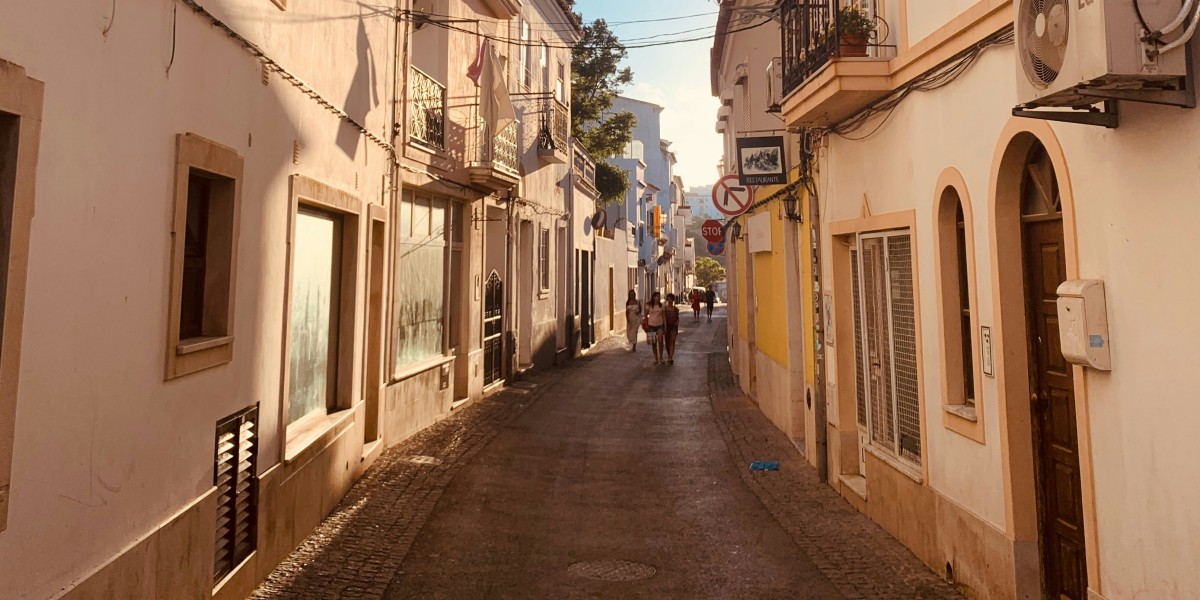
Unsplash
Living among the tight maze of Lagos’ walled centre puts you inches from pint-sized bars, creative brunch spots, and the hum of local life.
Popular with younger expats
and those who want everything within walking distance. Downsides include older flats and night-time noise in peak months.
There’s real charm in waking up to church bells or wandering to the market for fresh bread each morning. Most of the
streets are entirely pedestrian
, so it’s easy to ditch the car and embrace a simpler pace.
- Property for sale in Lagos Centro
- Long-term rentals in Lagos Centro
Porto de Mós
A bit more residential, this part of town attracts those after
sea views and newer builds
. The local beach is quieter than the main strip, with a couple of laid-back beach bars where locals meet. It’s a
favourite for retirees
and anyone fancying more space.
Most homes here have
terraces
, and there’s a stronger sense of neighbourhood, with dog walkers and families mingling in the evenings. The hills mean you’ll get a workout walking back from the beach, but you’re rewarded with
sweeping Atlantic views
.
- Property for sale in Porto de Mós
- Long-term rentals in Porto de Mós
Lagos Marina
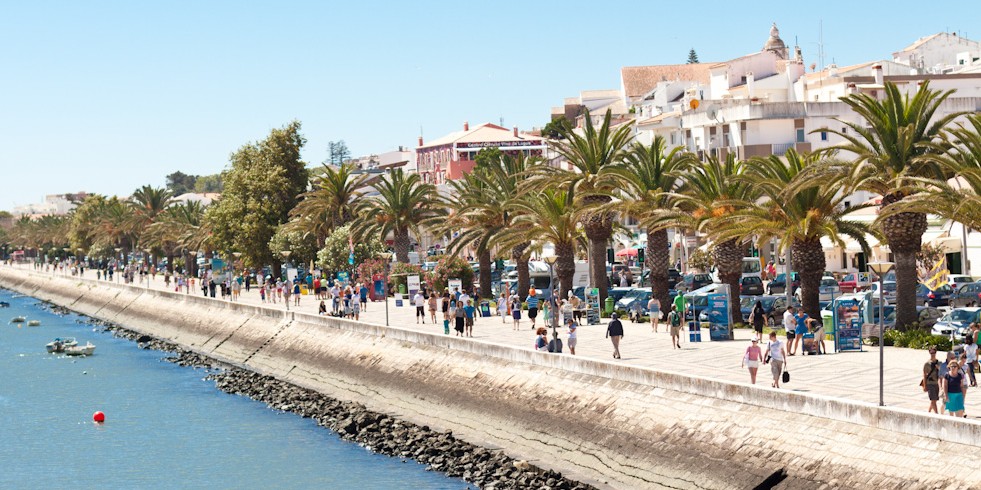
Fai Fu, CC BY-ND 2.0
Flickr
Set just east of the historic centre, Lagos Marina offers a more modern take on Algarve living. With
palm-lined promenades
, contemporary apartment blocks, and a front-row seat to an ever-changing parade of yachts.
You’ll find a
cosmopolitan crowd
here—many residents are international, and the cafés, bars, and shops along the waterfront lean towards the global palate. The marina’s flats tend to be newer, with
private balconies and underground parking,
but you’ll pay a little extra for the privilege and sea views.
- Property for sale in Lagos Marina
- Long-term rentals in Lagos Marina
Meia Praia
Well-loved for its enormous stretch of sand and easygoing pace, Meia Praia is a hit with
families and kite-surfers
. Modern apartments edge the beach, and it’s close to the train station for trips to Faro or Lisbon. Further from the schools and the centre.
The boardwalk here is
great for joggers and morning cyclists
, and beach bars pop up in summer for lazy afternoons or sunset drinks. In winter, it’s much quieter, but you’ll often have a kilometre of beach pretty much to yourself.
- Property for sale in Meia Praia
- Long-term rentals in Meia Praia
Outskirts and rural Lagos
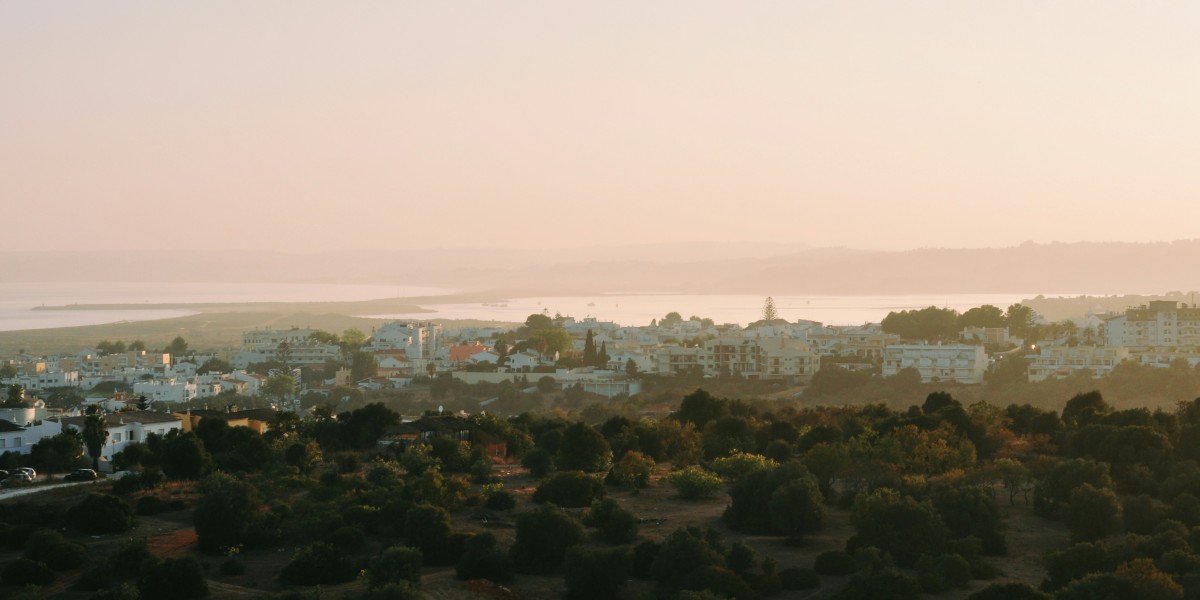
Unsplash
Villas and small holdings dot the hills just outside town, offering peace, privacy, and room for a garden. Expats here tend to be
long-term or semi-retired
and value tranquillity over convenience. It’s best if you have your own wheels.
The countryside is perfect if you want to
grow your own veg or keep a few chickens
, and you’ll often find secret walking paths winding between the orange groves. Expect a slower pace and the odd wild boar sighting at dawn.
- Property for sale in the Lagos surroundings
- Long-term rentals in the Lagos surroundings
Weather in Lagos
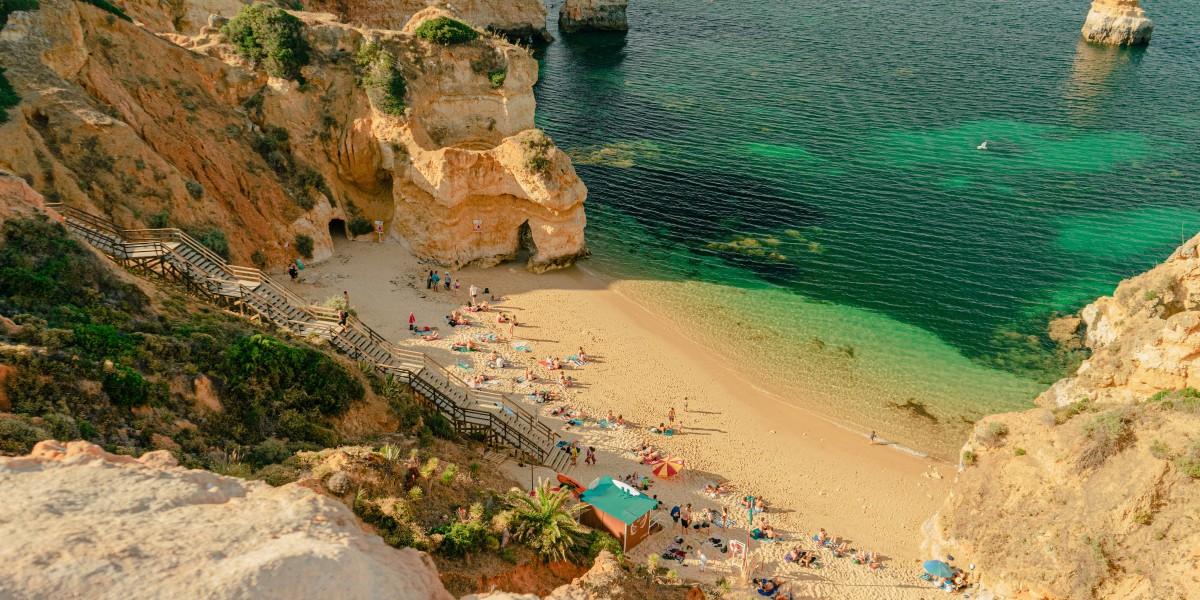
Unsplash
The weather is, hands down, one of the main reasons so many people choose Lagos for a fresh start. Summers run bright and warm. Expect
25–30°C most days
, with cool sea breezes keeping it pleasant, stretching from May right through to October.
Winters tend to be mild
—daytime highs of 15–18°C—and rain is light but concentrated between November and January. The Atlantic means humidity hovers but never lingers uncomfortably, and it rarely gets cold enough to need proper heating. Forget snow; you’ll spend more time debating suncream than boots.
Live music in Lagos
Music is stitched into the fabric of Lagos—
buskers
liven up the praça and
tucked-away venues
host everything from jazz and blues to indie sets and Portuguese fado. By summer, local bars like
Stevie Ray
’s and
Lazy Jacks
hum with late-night jams, while Sunday sunset sessions on
Meia Praia
can carry on till dark. Even in winter, you’ll find smaller gigs in town, especially around
Rua 25 de Abril
. It’s not Lisbon or Porto for big acts, but you won’t struggle to find a tune and a crowd on any weekend.
Living Lagos vs. living in Faro
Both towns have a lot in common, but their vibes are different enough to tip the scales, depending on what you’re after.
Lagos is smaller, more laid-back, and leans heavily towards the beach-and-café lifestyle, with dramatic scenery out every window. Faro, as the regional capital, is busier all year, offering more shopping, culture, and administrative services. However,
living in Faro
means the beaches are a quick ferry or train ride away, as the town sits slightly inland. Expats in Lagos tend to form a
tight-knit, outdoorsy scene
, while Faro welcomes university crowds and those after a city fix with good transport links. Both are friendly, but Lagos is a softer landing if you’re hunting for a mix of peace and playful moments by the sea.
Expat life in Lagos
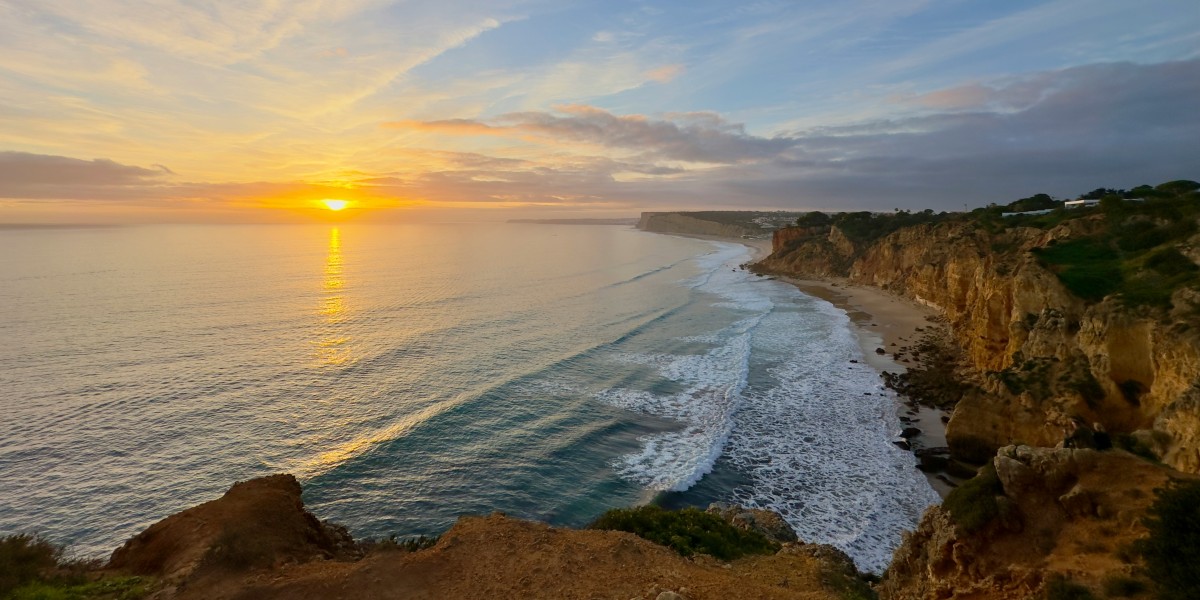
Unsplash
Expat groups in Lagos thrive on WhatsApp, Facebook, and in person, with
clubs for hikers
,
language exchange
, yoga, art, and more. You’ll see meetups posted at local cafés or on noticeboards. Newcomers often remark how quickly Lagos begins to feel like home, thanks to the
mix of long-term Brits, Irish, Dutch, Germans
, and increasing numbers of North Americans and South Africans setting roots.
Integration is smooth if you’re open-minded and have a go at the basics of Portuguese. English is widely spoken in cafés, shops, and even at the council offices, but making an effort with the local language will be much appreciated. For families, there are a handful of
international schools
dotted across the Algarve, and healthcare, public and private, is solid, with local clinics used to treating foreigners.
Where do most expats live in Lagos?
You’ll find the busiest expat scenes in the
historic centre, Meia Praia,
and
Porto de Mós
, but some prefer the quieter pockets on the outskirts or in nearby villages. Events, community volunteering, and international evenings at pubs bring even the “hidden” expats out, though it’s a good idea to join in with local events too, rather than stick within foreign circles.
Is Lagos a good place to retire?
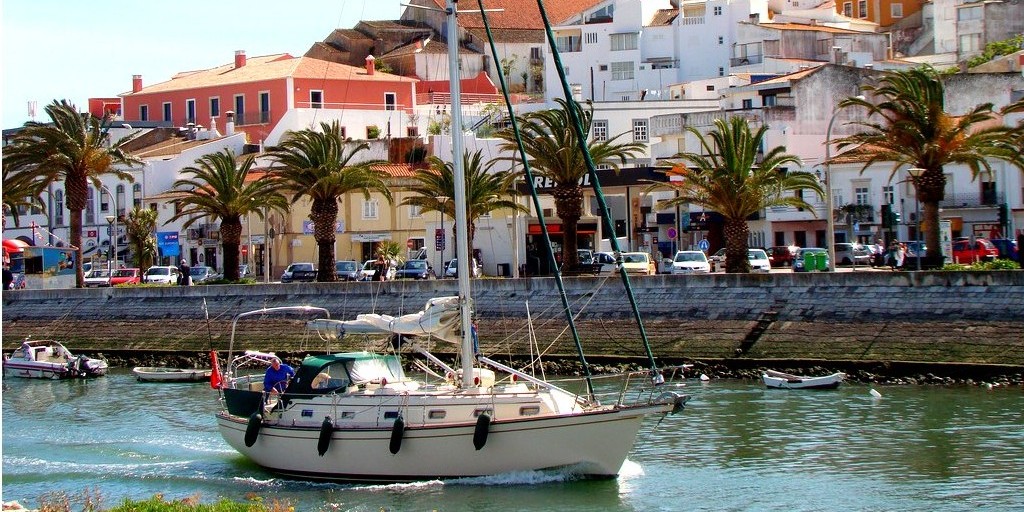
Lacobrigo, CC BY-SA 3.0
Creative commons
Lagos has become a bit of a favourite for retirees from the UK, Germany, Ireland, and beyond.
Consistent sun, relaxed pace, affordable quality of life
, and a decent calendar of social activities go a long way.
Access to healthcare is straightforward, the
cost of living is manageable
for most pension incomes, and you’re
close enough to Faro airport
for easy trips back home. Downsides? Things can feel very sleepy once tourist season drops off, and public transport options are limited outside the town. But if you’re after mild winters, friendly faces, and sandy walks all year round, it’s tough to beat.

